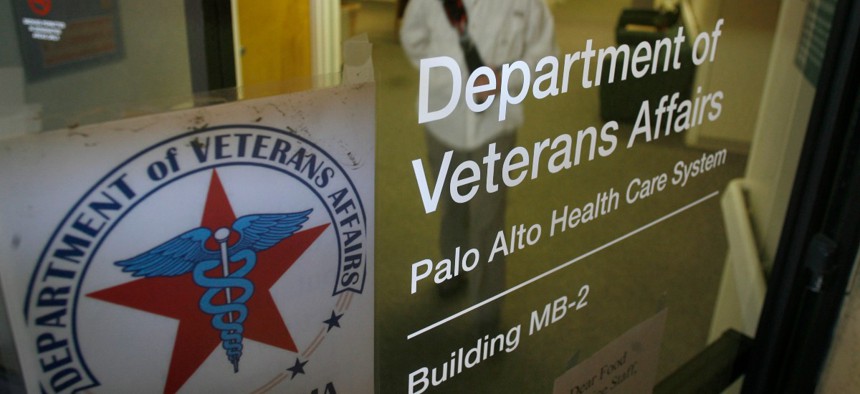Veterans Health Administration, Verizon Working to Test 5G Drone Technology

Michael Macor/The San Francisco Chronicle via Getty Images
An innovation hub at the VA Palo Alto Health Care System is undertaking a pilot program to test and deploy 5G drones and related technologies to improve safety.
The Veterans Affairs Department’s Veterans Health Administration and Verizon have been collaborating on the testing and development of 5G drones and mobile edge compute—or MEC—technologies to enhance the safety and security of medical facilities and patients.
The pilot project is being conducted at the National Center for Collaborative Healthcare Innovation, or NCCHI, a hub established within the VA Palo Alto Health Care System in California to help harness the innovative capabilities of Silicon Valley in support of veterans.
Dr. Thomas Osborne—NCCHI’s director and the chief medical informatics officer at VA Palo Alto—told Nextgov that the ongoing work aligns with the center’s focus on “creating the healthcare system of the future,” noting that VA Palo Alto was one of the world's first 5G-enabled hospitals.
“Part of building the healthcare system of the future involves just leaning forward to put VA in the driver's seat, and to provide the best care no matter what the challenges are,” Osborne said.
The work on the pilot began in April, and Osborne said much of the effort so far has entailed holding brainstorming sessions and “sketching out protocols and standard operating procedures,” with input provided by VA Palo Alto’s leadership and VA’s police services. Some of the hospital system’s police officers and staff members have also completed courses and testing to become Federal Aviation Administration-certified drone operators, and VA Palo Alto is continuing to collaborate with its partners and the FAA to ensure that the initiative is moving forward appropriately.
“We've already started working on simulated emergency response scenarios and testing, and we're iterating and planning on those so we can be optimally prepared for when something does happen,” Osborne added.
He said that the use of 5G-enabled drones and MEC technologies will better equip VA Palo Alto to respond in the event of emergencies, to locate missing patients and to conduct routine inspections and maintenance of hospital infrastructure.
“The thoughtful integration of advanced drones with 5G and MEC technology has the potential to significantly improve emergency response times,” Osborne said. “Just as an example, you can immediately launch an advanced drone that can give you a bird's eye view and live-streamed, high-fidelity video of an emergency scene, and then send that securely to personnel on the ground and at a command center, so they have real-time situational awareness.”
VA Palo Alto is still going through the procurement process to acquire additional drones and technical tools as well, including so-called ‘blue drones’ that are certified by the federal government as being safe to operate and free of components from banned or restricted countries. And the NCCHI and VA Palo Alto teams are also continuing to design and test different scenarios in which the 5G drones and MEC technologies might prove useful.
“The more we use these systems, the more use cases we come up with,” Osborne said. “Some of them we didn’t consider at first but are now exploring, such as having drones that can deliver emergency supplies to difficult situations, such as Narcan—which is a medication to use for drug overdoses—or other field medicine equipment. if you don't happen to have it on you, then you can get a drone that cuts the distance.”
He added that there are a number of regulatory challenges and compliance requirements that the hospital system is still working through—such as for the FAA—but that collaborating with their partners, including Verizon, is helping to smooth out the process.
In a press release, Verizon highlighted how the ongoing collaboration with VA Palo Alto and NCCHI “will help hospital staff to better assess critical needs and facility infrastructure.”
“Our combined 5G MEC and drone partnership with the Veterans Affairs Palo Alto Healthcare System is the next step in the VA’s innovation journey, and it represents how other federal agencies can adopt next-generation technologies to help improve the way they serve their constituents,” Maggie Hallbach, the senior vice president of public sector at Verizon, said in a statement.






